#transgender? no more like transhuman
Text
From the moment I understood the weakness of my flesh, it disgusted me. I craved the strength and certainty of steel. I aspired to the purity of the blessed machine. Your kind cling to your flesh as if it will not decay and fail you. One day the crude biomass that you call a temple will wither, and you will beg my kind to save you. But I am already saved, for the machine is immortal.
1 note
·
View note
Text
huh, the amount of people who perceived themes other than eugenics and transhumanism in regards to evolution in phyrexia is very interesting to me
#just. Huh!#i get the aesthetic appeal dont get me wrong the entire design for phyrexia is very cool#but considering the core philosophies behind the creation of original phyrexia and how that bleeds into new phyrexia#the amount of people i see who go to great lengths to kind of. twist it into a leftist or trans symbol is fascinating#when at its core its based upon an ideology that seeks to ''perfect'' perceived ''flaws'' like being transgender#but at the same time transhumanism and the idea of changing your body to something optimal is also heavily significant#thematically when it comes to trans stories. especially when considering the perception of so many people that transitioning is somehow#a mutilation of the human body that turns someone into a monster (wrong). so i can see why other trans people#would identify with phyrexia in that vein. being seen as monsters for undergoing such a procedure#for me phyrexia and the procedure behind phyresis has always come off more as an allegory#for medical procedures done to ''perfect/fix'' the unwilling. forced reassignment for intersex people or lobotomization of the disabled#sterilization of the “undesireable”.#esp with yawgmoths (self proclaimed eugenicist though his writer was kinda confused abt what eugenics actually is)#malpractice and violence upon the masses and views on race and the reverence that phyrexia (his creations of course) hold for hi#*him#and the facets of that worship which continued to exist into new phyrexia
2 notes
·
View notes
Text
The rubicon primaris is top surgery for space marines in this essay I will-
4 notes
·
View notes
Text
cant wait until all forms of trans are legal. yall are really cool and the flesh is weak girl so true.
#this was a joke about subverting expectations with words#but like transhumanism is gonna be viewed the same as like transgender when it rolls around#weird to think about#if i live that long ima gonna be oppressed just like yall#but also cant wait to see some cyborg guy stating how much they hate trans people#like boy#i think you did slightly more then change you gender#you lost a little bit more than they did#also let them be before i get bored and kill you
1 note
·
View note
Text
Book recs: alien intelligences
Intelligent spiders, octupi, plants, bacteria, and even entire oceans, intelligence without sentience, extra terrestrials and strange intelligences evolved right here on Earth - alien minds can take many forms. Allow me to share with you some books featuring the most alien and fascinating ones.

Previous book rec posts:
Really cool fantasy worldbuilding, really cool sci-fi worldbuilding, dark sapphic romances, mermaid books, vampire books, many worlds: portal fantasies, many worlds: alternate timelines, robots and artificial intelligences, post- and transhumanism
For more details on the books, continue under the readmore. Titles marked with * are my personal favorites. And as always, feel free to share your own recs in the notes!
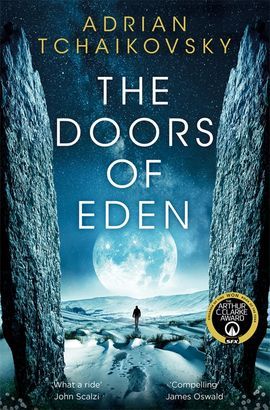
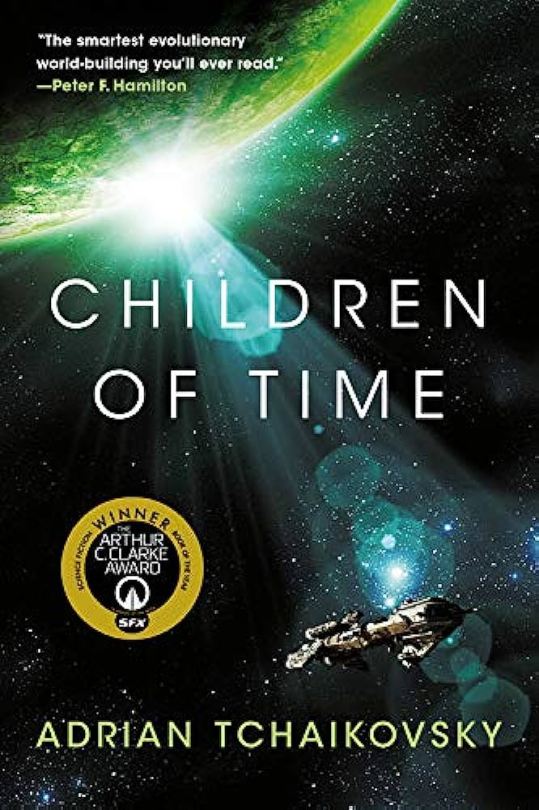
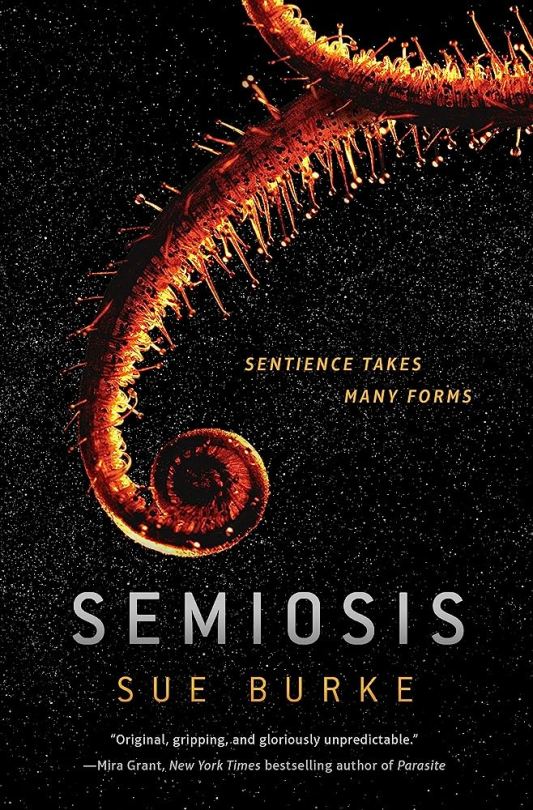
The Doors of Eden by Adrian Tchaikovsky*
The Doors of Eden is something of an experiment in speculative biology, featuring versions of Earth in which various different species were the one to rise to sentience, from dinosaurs to neanderthals. Now, something is threatening the existence of all timelines, dragging multiple different people and species into the struggle, among those a pair of cryptid hunting girlfriends and a transgender scientist.
Children of Time by Adrian Tchaikovsky*
Millenia and generation spanning scifi. After the collapse of an empire, a planet once part of a project to uplift other species to sentience is left to develop on its own, resulting not in the intelligent monkeys once intended but in sentient giant spiders. Millenia later, what remains of humanity arrives looking for a new home, only to be met by the artificial remains of the ancient woman who once led the uplift project - and she is not willing to let them on her planet.
Semiosis (Semiosis duology) by Sue Burke
A generational story following a group of humans trying to survive on a new planet, where a strange and unkowable intelligence is finding ways to use them to its whims. As the humans come across an abandoned city wrapped in the roots of a strange plant, they slowly come to the realization that mutual communication is the only path to peace and survival.

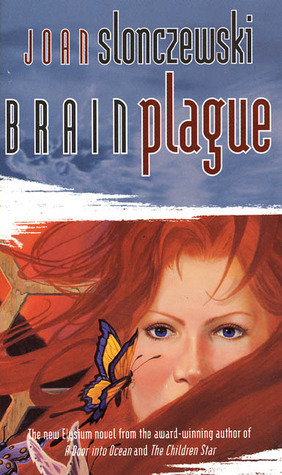
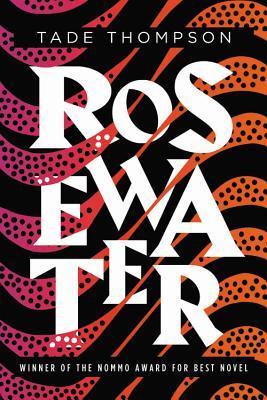
The Three-Body Problem by Cixin Liu
While I felt the characters could’ve been better developed, this is undeniably a well-written novel featuring an alien race and culture developed on a planet vastly different from ours. Firmly in the realm of hard scifi, this is a realistic, fascinating and slightly terrifying look at how first contact may look.
Brain Plague (The Elysium Cycle) by Joan Sloncewski*
Chrys, a struggling artist, agrees to become a carrier for a sentient strain of microbes. With their help, Chrys breathes new life into her career. But every microbe society is different - some function as friends and brain enhancers to their carrier, while others become a literal brain plague, a living addiction taking over the life of their carrier. And like every society, the microbe community is in constant flux - inluding the one inside Chrys's head.
Rosewater (The Wormwood trilogy) by Tade Thompson
In Nigeria lies Rosewater, a city bordering on a strange, alien biodome. Its motives are unknown, but it’s having an undeniable effect on the surrounding life. Kaaro, former criminal and current psychic agent for the government, is one of the people changed by it. When other psychics like him begin getting killed, Kaaro must take it upon himself to find out the truth about the biodome and its intentions.

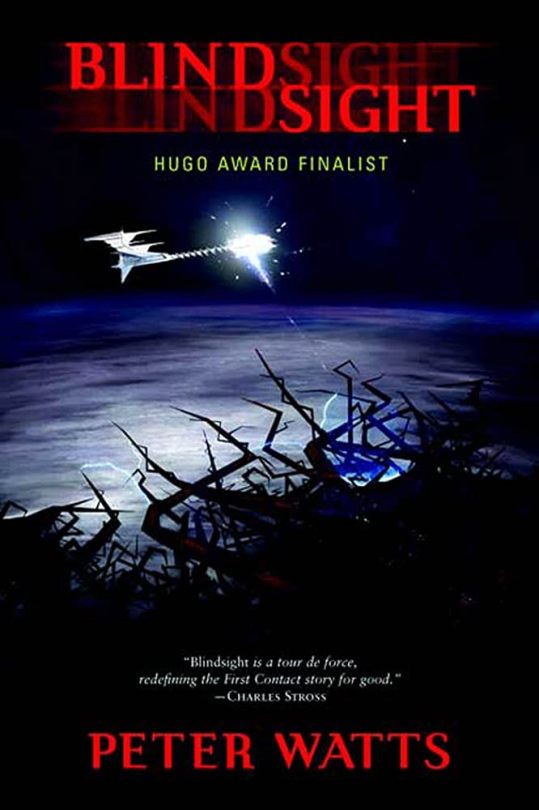
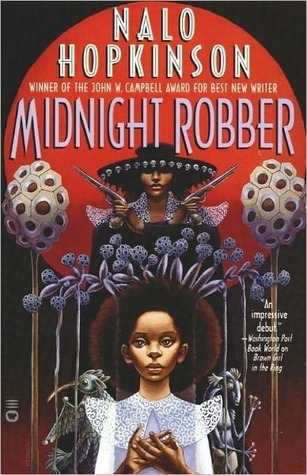
Dawn (Xenogenesis trilogy) by Octavia E. Butler*
After a devestating war leaves humanity on the brink of extinction, survivor Lilith finds herself waking up naked and alone in a strange room. She’s been rescued by the Oankali, who have arrived just in time to save the human race. But there’s a price to survival, and it might be humanity itself. Absolutely fucked up I love it I once had to drop the book mid read to stare at the ceiling and exclaim in horror at what was going on.
Blindsight by Peter Watts*
Vampires and aliens and questions of the nature of consciousnesses, oh my. A ship is sent to investigate the sudden appearance of an alien vessel at the edge of the solar system, but the crew, a group of various level of transhumanism, isn’t prepared for the horrors awaiting them. No, seriously, this book will fuck you up, highly recommend if you’re okay with a lot of techno babble and existential horror.
Midnight Robber by Nalo Hopkinson*
Utterly unique in world-building, story, and prose, Midnight Robber follows young Tan-Tan and her father, inhabitants of the Carribean-colonized planet of Toussaint. When her father commits a terrible crime, he’s exiled to a parallel version of the same planet, home to strange aliens and other human exiles. Tan-Tan, not wanting to lose her father, follows with him. Trapped on this new planet, he becomes her worst nightmare. Enter this book with caution, as it contains graphic child sexual abuse.
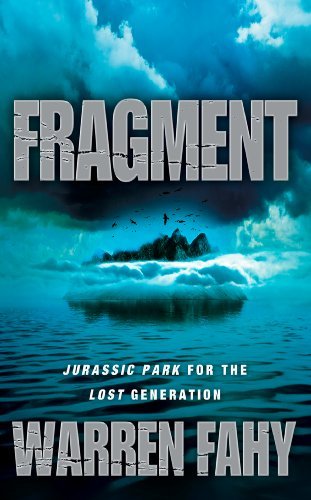
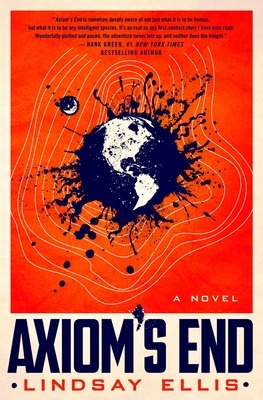
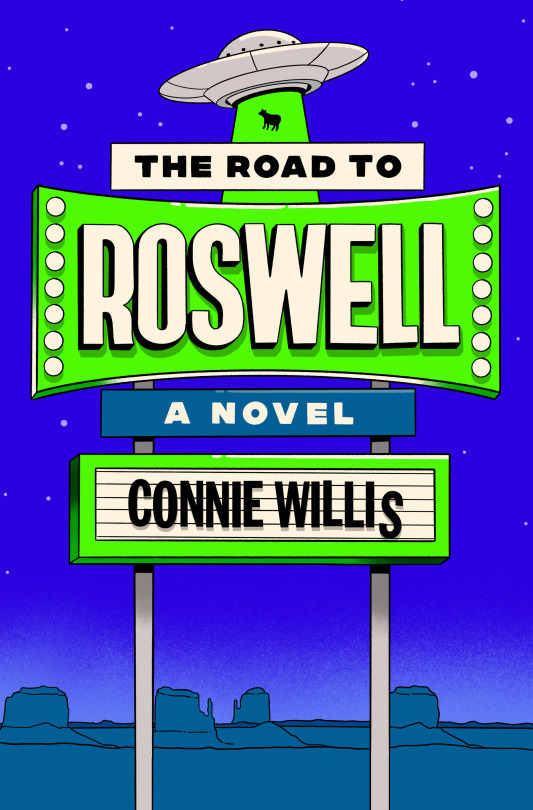
Fragment (Fragment duology) by Warren Fahy*
The reality TV show Sealife is having a rough time - as it turns out, a ship full of scientist doesn’t make for the kind of drama they hoped for. Hoping for some excitement, they reach Hender's Island, a fragment of a lost continent that may contain an interesting new ecosystem. But as they step foot on the island, they quickly come to realize the ecosystem isn’t just new, it’s highly dangerous and very hungry. Among all this life is one single species that may be more dangerous than any other, but which may also be the salvation of the scientists on the island. A bit wonky, but genuinely one of the most fun books I have read, I love it so much.
Axiom's End (Noumena trilogy) by Lindsay Ellis
It’s 2007, and a leak has just confirmed that the US has reached alien contact. Cora wants nothing to do with it, but as her absent father is the whistleblower who dropped the news the media won’t leave her alone. Even worse, she soon finds herself meeting and being pursued by the alien presence itself as it tries to remain in hiding - and discovering that there is a much larger threat on the horizon.
The Road to Roswell by Connie Willis*
Francie has just traveled to Roswell to attend her college friend's wedding to a UFO conspirasist. Not a believer herself, Francie is shocked when she finds herself abducted by an alien. Her abductor is not much what popular media would have you believe, looking more like a tumbleweed than a grey alien, and is clearly on some kind of mission it isn’t willing to put on hold for the sake of Francie attending to her duties as a bridesmaid. As more people get roped along - among those a conman, an old lady, a ufo conspirasist, and a retiree with an RV - Francie finds herself getting closer to the alien and wanting to help it succeed.
Bonus rec: if you like this book, you may also enjoy the movie Paul, which has a similarly humorous tone and similar plot.
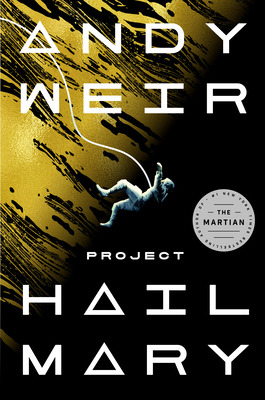
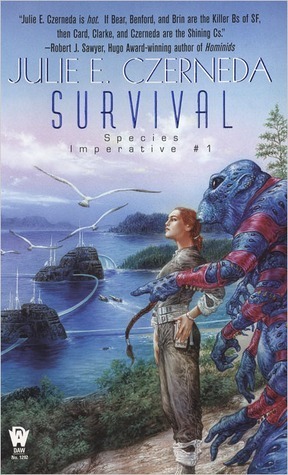
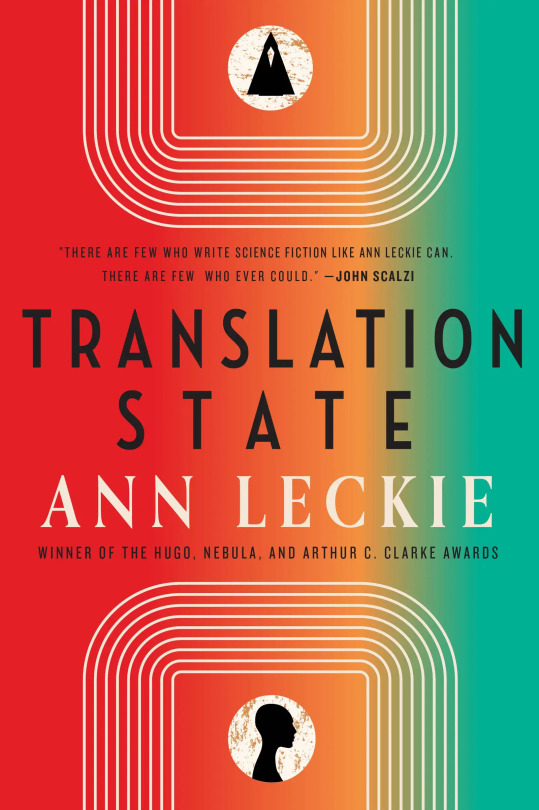
Project Hail Mary by Andy Weir*
Ryland Grace just woke up up from a coma, unable to remember anything. He finds himself alone on a space ship, and as his memories slowly trickle back, he realizes he's been sent on a mission: to find a solution to the impending doom of the earth. Still struggling with holes in his memories, Ryland tries to fulfill his mission, but as he gets closer to his goal, he discovers someone else got there first. And they aren't anything close to human. Funny, heartfelt, and heavy on the science.
Survival by Julie E. Czerneda
Mac, a biologist studying salmon on Earth, has little interest in life beyond her own planet. Despite this, she’s sought out by Brymn, an alien archaeologist hoping her expertise as a biologist can help him solve the secret behind the Chasm, a region of space completely devoid of life. Trying as she might not to get incolved, Mac has little choice as she and her colleagues come under attack by the mysterious Ro, the species Brymn's people suspect to be the cause of the Chasm.
Translation State by Ann Leckie*
An exploration of the alien as filtered through the human. At what point does the human become something else? When does something else become human? Is it a question of biology or culture, nature or nurture? Can we choose it? Can it be forced upon us? Set in the Imperial Radch universe, Translation State follows three different characters embroiled in the question of what makes a human. The alien Presger can only communicate with humans using their translators - people they’ve created that are not quite human and not quite alien. But as news of a translator fugitive arises, conflict brews regarding what right they have to choose their own identity and home.
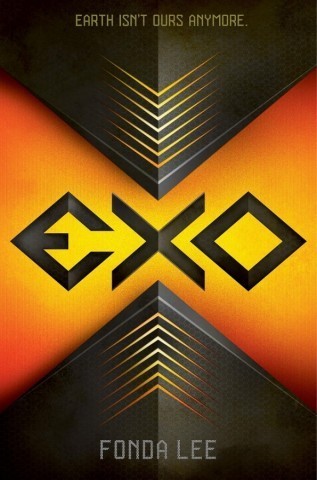
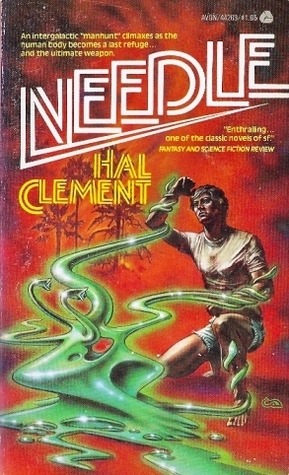
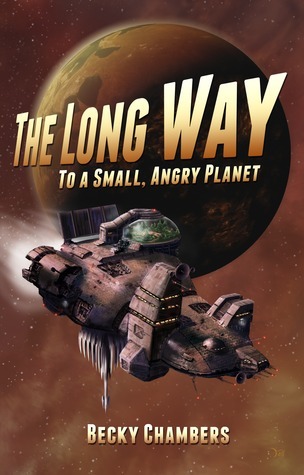
Exo (Exo duology) by Fonda Lee*
Young adult. Earth has long since been under the control of an alien presence. Donovan Reyes is an exo, a human enhanced with alien technology, working to keep the colony and its people safe. The biggest enemy is Sapience, a terrorist organisation opposing alien rule by any means necessary. When a mission goes awry, Donovan finds himself abducted by Sapiance, something that risks a war. While it took until the second book for me to be fully sold on this series, it features a genuinely nuanced take on oppression and resistance rarely seen in YA genre.
Needle by Hal Clement
1950s classic. A small island in the pacific ocean and a fourteen-year-old boy have just become the center of an interstellar chase between an alien Hunter and the criminal he's pursuing. Robert is a regular boy, but he has a very special passenger: an alien symbiont hiding inside his body. The alien became stranded on Earth as he pursued a criminal of his own species, and now they are both trapped on the same island, playing a game of cat and mouse as Robert and the Hunter struggle to find their prey before it finds them.
The Long Way to a Small, Angry Planet (Wayfarers series) by Becky Chambers
Rosemary Harper just got a job on the motley crew of the Wayfarer, a spaceship that works with tunneling new wormholes through space. With a past she wants to leave behind, Rosemary is happy to travel the far reaches of the universe with the chaotic crew, but when they land the job of a life time, things suddenly get a lot more dangerous. A bit of a tumblr classic in its day, this is a cozy space opera with an episodic feel and vividly realized characters and cultures.
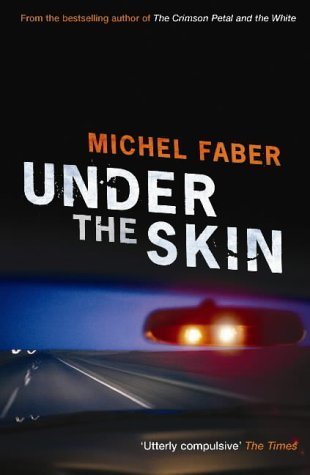
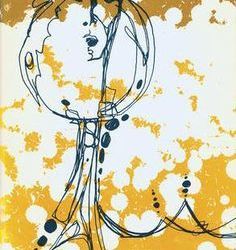

Under the Skin by Michel Faber
A dark allegory of alienation and dehumanization, Under the Skin follows Isserley, a woman traveling along the roads of England and picking up hitchhikers. Little does her passengers know, she’s an alien hiding her true self, and they are her prey and a delicacy for her species.
Solaris by Stanislaw Lem
1960s Polish classic. Arriving on a station orbiting the planet Solaris, Kris Kelvin is meant to study the strange, possibly sentient ocean that covers its entire surface. But the effects of the ocean are far reaching - Kelvin finds the crew of the station secretive and unstable, and is shocked to wake one day to the embodiement of a long dead lover. Was it created by the brain-like ocean, and if so, why?
West of Eden (West of Eden trilogy) by Harry Harrison
65 million years ago, the meteor that killed the dinosaurs never arrived. Without it, the dinosaurs lived and thrived, allowing a the complex society of the matriarchal Yilanè to arise. Meanwhile, in the new world, humans still evolve, and when an impending ice age forces the Yilanè across the ocean in search for a new home, the two are destined to clash. A bleak story of the cycle of violence and hate leading to war, West of Eden is a marvel of world-building.
Bonus AKA I haven't read these yet but they seem really cool
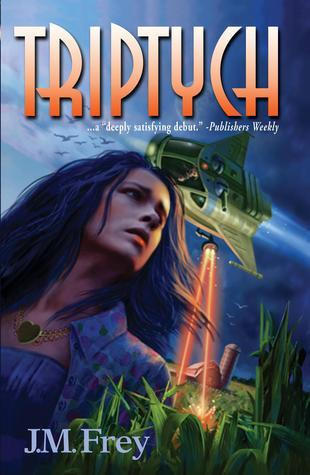
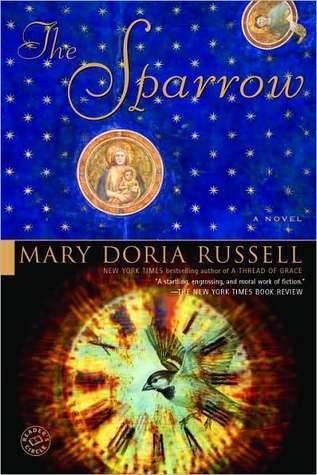
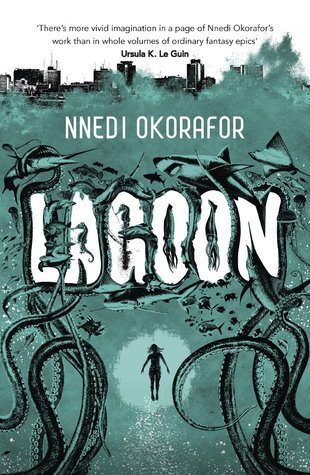
Triptych by J.M. Frey
Kalp is a widower and alien refugee newly arrived on Earth; Gwen is a language expert secretly recruited by the United Nations to help integrate a ship of alien refugees; Basil is an engineer who loves them both. Together they must defend their relationship against a violently intolerant world.
The Sparrow (The Sparrow duology) by Mary Doria Russell
When proof of alien life is found, the United Nations are too slow in their plans for a first contact mission. Instead, the Society of Jesus overtake them and send their own ship, but the crew could never have been prepared for what they will find.
Lagoon by Nnedi Okorafor
Something massive and alien crashes into the ocean off the coast of Nigeria. Three people, a marine biologist, a rapper, and a soldier, find themselves encountering this presence, and have to race to save humanity before it's too late.
Honorary mentions AKA these didn't really work for me but maybe you guys will like them: Salvaged by Madeleine Roux, Exodus by Nicky Drayden, The Lesson by Cadwell Turnbull, Embassytown by China Miéville
#nella talks books#the doors of eden#children of time#semiosis#the three-body problem#brain plague#rosewater#xenogenesis#blindsight#midnight robber#fragment#axioms end#the road to roswell#project hail mary#species imperative#translation state#exo#needle#the long way to a small angry planet#under the skin#solaris#west of eden#there are more alien centric books that I love#but this list is pretty focused on books where the truly alien unkowable and inhuman is central#so anything featuring human looking or acting aliens got disqualified#same as books where the aliens themselves weren’t very central#also i need you all to know that i have had official art of the 'alien' from Fragment as my screensaver for a decade#that book is so silly goofy dialogue and absolute gory slaughter i love it so much#i still have one of these rec posts in my drafts but! will soon post a new poll in preparation for more
650 notes
·
View notes
Text
Some Queer Games and Devs to check out this Pride Month
Hello! I play a decent amount of video games, and like making posts about them. This year, I've been making a lot more posts analyzing and promoting games I particularly enjoy. I'm making this post as a way to share games that have queer developers and/or topics to celebrate this year's Pride Month.
All games' websites will be linked in their respective sections, and I urge you to check out any of the games that speak to you. There's a decent amount of variety on this list, so please give all of them a look!
Please note that all of these games are ones I have personally played--I am not including games I have not played yet for myself. If you were hoping for your favorite title to be on here, I am very sorry but chances are I just haven't heard of or played it yet.
ANATOMY (2016)
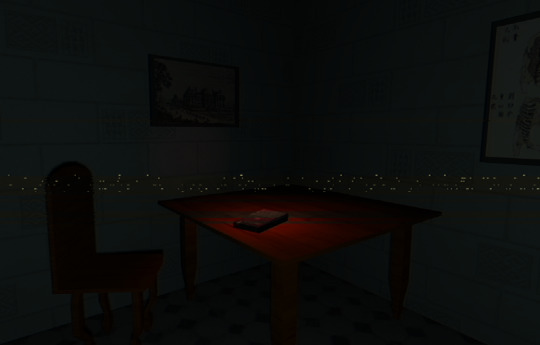
ANATOMY is a horror game released in 2016 by developer Kitty Horrorshow (she/her). While the game does not contain any queer themes, the dev is openly transgender.
The plot of the game coincides with the gameplay, which centers around walking through a nearly pitch-black house collecting tapes and putting them in a tape player. Despite its simplicity, the game has been commended by many for being "the scariest game they have ever played." The story of the house is uncovered as you listen to each of the tapes, and reentering each time the game shuts you out.
This game features themes surrounding body horror and psychological horror, and one moment that can be seen as a mild jumpscare if it is not expected.
A full playthrough takes about an hour, with multiple endings. However, all roads lead to the same destination.
ANATOMY is available for $3 USD on itch.io.
We Know The Devil (2015)
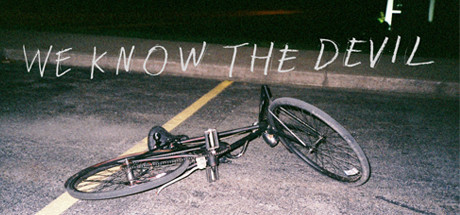
We Know The Devil is a visual novel developed by the team Worst Girls Games, which consists of Aevee Bee (she/her) and Max Schwartz (any). Music for the game is composed by Alec Lambert.
The plot of the game surrounds three teenagers who have been sent to a religious summer camp in the American midwest. With just one week left, they're all hoping for everything to be smooth sailing, but nothing is ever that simple. On this fateful night, they must face the devil; two will make it out, but one will be left behind.
The gameplay focuses on making decisions on who gets paired up together, and consequently who gets left out of the interaction. These choices determine what ending you get and there are never any wrong answers.
Queer rep in this game consists of polyamory, lesbianism, transgenderism, and transhumanism. There is also mentioned homosexuality regarding a male character that is only ever talked about in passing.
This game contains themes surrounding religion, internalized homophobia, along with general homophobia and transphobia. There are scenes that depict underage drinking, vomiting, body horror, and some moments that can be interpreted as self-harm. Some sound effects in the game can be jarring, along with the track "Incense (Smoke & Honey)" from the OST, a song that plays in three of the four endings.
A single playthrough can take about two hours depending on reading speed. There are four endings, meaning a minimum of four playthroughs.
We Know The Devil is available for $6.66 USD on Steam, Nintendo Switch, and itch.io.
There is also the demo for the game, which is free to download off of the game's itch.io page and baked into the Switch port.
Heaven Will Be Mine (2017)
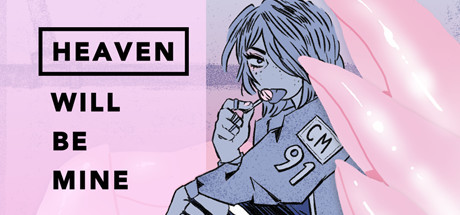
Heaven Will Be Mine is a visual novel also developed by the team Worst Girls Games, with soundtrack once again composed by Alec Lambert.
The game's plot centers around three factions in the solar system. They have all been called back to Earth under threat of death; two factions want to stay in space, while one is choosing to return. At the start of the game, you can choose one out of three characters to follow the POV of, each belonging to one of the three factions.
Gameplay is similar to We Know The Devil, meaning that you make decisions throughout the story that determine what ending you get. There are no wrong choices, only ones that lean in the favor of one of the faction out of your options.
Queer rep in this game consists primarily of polyamory, lesbianism, transgenderism, and transhumanism. There may be more I am forgetting to mention.
This game contains scenes depicting violence, body horror, and discussions about sexuality, abuse, and trauma. This game is meant for a more mature audience than the others on this list. Some sound effects and music in the game can be jarring. There may be content warnings I am forgetting to put here.
The game has three major story routes and three endings, and each playthrough takes around four to five hours depending on reading speed. At minimum, you will need to play this game three times.
Heaven Will Be Mine is available for $15 USD on Steam, iOS, and itch.io. It should be noted that the price on iOS is different than on other platforms, being listed at $5 USD.
In Stars And Time (2023)
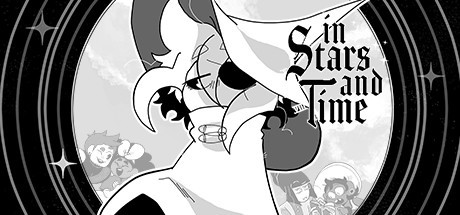
In Stars And Time is a turn-based RPG developed by insertdisc5 (she/they) and published by Armor Games Studios. Music for the game is composed by Studio Thumpy Puppy.
The story follows your typical RPG party, starting the day before the final dungeon and final boss. However, when you go in, you get caught in a trap and die. Time suddenly rewinds, and you find yourself at the day before your party entered the dungeon. You are caught in a time loop, and must find a way to stop the final boss and escape the loops.
Gameplay mostly consists of turn-based combat with enemies, and making the right dialogue choices when talking to NPCs and your party members. There are several puzzles throughout the game that encourage you to use the looping mechanic to solve them.
Queer rep in this game consists of transgenderism (transmasc and nonbinary explicitly, but there are some characters that can be interpreted as transfem, agender, and/or genderfluid), aromanticism, asexuality, lesbianism and homosexuality, and a plot thread that involves t4t romance. All six major characters have canonical pronoun sets. There may be more rep I am forgetting to include here in this list.
This game contains scenes of mild violence, self-hatred and other heavy mental heath topics, one scene of child endangerment, unreality, and optional scenes involving self-harm and suicide.
The average playtime for this game is 26 hours, which increases to 36 depending on how much optional content you engage with. There is technically one ending, but an optional plot thread can get you an alternate version of the ending screen. This plot thread is highly encouraged to be followed.
In Stars And Time is available for $20 USD on Steam, itch.io, Nintendo Switch, and PS4 and PS5.
There is also a previous title titled START AGAIN: a prologue, which is available on Steam and itch.io. This game does not need to be played to understand In Stars And Time, but is highly recommended nonetheless.
Some personal anecdotes regarding each of these games:
In Stars And Time is one of the few games where I saw a character (Siffrin in this case), pointed at them, and said "They're just like me!"
We Know The Devil and Heaven Will Be Mine both have themes of queer solidarity in the face of oppression and it fills me with rebellious rage (positive).
ANATOMY is one of my favorite games ever made, and is objectively the scariest game I have ever played.
Almost all of these games have made me almost cry, which is a very high bar for a game to reach. The only one that didn't is ANATOMY, mostly because it evokes more fear than it does tears for me.
We Know The Devil in particular evokes a very specific nostalgia for me, so the setting and characters hit differently for me than they may for others.
I played In Stars And Time shortly after a breakup and consequently developed the most horrific crush on the character Isabeau. It is frankly quite embarrassing.
#rambles#in stars and time#isat#we know the devil#wktd#heaven will be mine#hwbm#anatomy#anatomy game#indie games
114 notes
·
View notes
Text
Assuming for a second that AdMech are indeed as disproportionately popular with transgender fans as more tolerable parts of warhammer meme culture would suggest, it does seem like a very natural thing. The alignment of transhuman and transgender in the act of reshaping your body and all that.
But it does always feel to me like there is a certain... vibe that goes further than that. A compelling thematic connection, not reliant on the immortality of the machine. Something about the way Adeptus Mechanicus are often presented as the ones who are so clearly mistaken, their religion seen as absurd both in and out of universe, stemming from delusion rather than insight. Something about most human characters of the setting seeing them as alien and off-putting and them reveling in all the things that make them this way.
Something about being this... creature, so weird and abhorrent to normalcy, that has so willingly abandoned acceptance of others in pursuit of some bizarre truth? Being inexorably drawn towards a journey of which most others will never hear the call? Being pitied for the perceived unmaking of self, while knowing, in your heart of hearts, that it is through it that you have discovered the very secret of creation?
Could anyone possibly relate to that, I wonder.
#Adeptus mechanicus#transgender#trans rights#warhammer#warhammer 40000#wh40k#this too is cawlposting to me and I refuse to elaborate
323 notes
·
View notes
Text
Death-Neutral Antideathism
[epistemic status: a statement of personal philosophy. questions and responses welcome, but please argue the tractability of ending death with people who are more invested in it as a goal than I am]
I'm pretty normie for an anti-death transhumanist. I haven't signed up for cryonics and don't plan to unless it gets way cheaper and better, I donate neartermist, I have pierced ears and zero other body mods, etc etc.
I still consider myself a part of the movement, because it's straightforward and obvious to me that if people don't want to die they shouldn't have to, and if they want to change their bodies and minds they should get to.
Personally I'm fine with dying someday. I think I am going to grow up into an old person who has had plenty of experiences and is comfortable with not having many more of them. If I found out today that I had a terminal illness, I would rather spend my time and money on fulfilling my bucket list and leaving my loved ones good memories (and donate the rest) than in the hospital desperately trying out low-probability treatments. (See my opinion on cryo)
(Then again, I certainly wouldn't turn down a miracle cure! Or a known, tested treatment with a decent chance of getting me through! Or something that was unlikely to work but low financial and opportunity cost to try! This is also the same as my opinion on cryo)
I don't view death as bad inherently. It's just a change of state, if one that's uniquely impactful in its irreversibility and all-encompassing scope. I don't agree that people dying is always a great screaming moral emergency, that death is a yawning horror for anyone who looks at it clearly, or that we are all fooling ourselves. For me, the way modern culture treats death is actually a pretty good match to how I feel about dying.
But, um, *gestures at anti-deathists more broadly* *gestures at all the people who do try any possible treatment for their terminal illness* *gestures at the instinctive struggle for self preservation when it would be so much less effort to stop* It sure seems like there's a lot of not wanting to die going around! And it sure seems like a horrible idea to just ignore that!
People who make peace with their eventual death even though they'd prefer to live longer are fine, and not making a mistake. People who make a thought-out choice to die or to risk their lives for other goals are fine, and not making a mistake. And people who desperately want to live, who cling on to cryo and fund anti-aging and search for any possible means of continuing on, are also fine and not making a mistake.
I think death is bad for the many many many people who want to continue living, or decide to live, or endorse being alive, and who die anyway. A natural death after a long fulfilling life isn't an exception to that. This is the part where I do wholeheartedly agree with the standard anti-death talking points, and want them to become more mainstream. That competing perspective which validates the desire to not die, and which spurs people into looking for ways to do something about it, is vitally important for the sake of people who don't work like me.
Maybe this is just a long winded way of saying I'm a preference utilitarian (ish) who takes weird and hard-to-fulfill preferences seriously? If so, I'm happy to take up that flag. Weird-preference-fulfillmentism all the way!
(I haven't even brought up the transhumanism, which I support on the same lines - I don't think my position there is particularly unusual in these parts though, seeing as this is the transgender website.)
For now, I am in coalition with the anti-deathists. And I will keep being in coalition with them, until and unless the world shifts far enough to count my viewpoint as neutral.
#yum speaks#I guess this goes into#my writing#even though there is nothing like this in the rest of that tag#transhumanism#this is very loosely inspired by Rob's talking about antideathism on the AI long post but not a response to it#long post
45 notes
·
View notes
Text
I think one of the great things about the word "transhumanism" is that it leads you to make interesting connections through the metaphor of the transgender experience. And yet, not enough people take that invitation and run with it!
Like, okay, take the Cyberpunk universe, in the Capital C, CD Projekt Red sense. Kind of a fraught approach to its genre, but we can see that in more detail through the trans lens. People are empowered to customize their bodies in ways that feel better to themselves... but access to these customizations is gatekept by major corporations rather than available through socialized medicine. An underground DIY community exists, which mostly works for people but carries risks. These customizations can carry a cost of lifetime medication dependency, which is easily worth it for a lot of people, but can be a practical problem for (again) access reasons. And there's a lot of people who get upgrades they don't necessarily want because they feel that it's necessary on a practical level to get and keep jobs, which - that's not like the real life trans experience, but you know what it means? This is a forcefem world fantasy, except for a thing that isn't a gender. No wonder it has an "strangely enticing yet profoundly problematic" aura, we've seen that before!
There's a lot to be said here about the changing sense of self, and the sense of self incorporating changes. But I think what I want to talk about is arguably the biggest fumble of the world building - cyber psychosis. The idea that if you replace enough pieces of yourself, you lose your humanity and go insane. This obviously doesn't hold up to questions like "does my psychosis meter go up when I put on glasses or take my vitamins?" It doesn't have to, it's about feelings. There's something very queer respectability politics about the fact that most protagonist characters in this universe are modified, but look down on the people who went "too far." The literal dehumanization of modified people is an ugly thing to canonize as a mechanic of your universe. It's internalized transphobia for the characters and the authors - just, for a thing that isn't a gender.
I think if you really set out to write a transhumanist story about the economic pressure to transition in ways that increase your dysphoria rather than decrease it, you could easily write a better Cyberpunk. That's the power and clarity you get from engaging intentionally with the transgender metaphor. It's not the only connection that makes sense to explore - transhumanism intersects with a lot of topics and that's the intellectual joy of it - but I think you leave a lot of potential on the table if you're not checking in with the transgender allegory at some point in your writing process.
#transhumanism#discourse#i think this also gives me a lens for exploring a character in my fantasy series
30 notes
·
View notes
Text
The Low-Friction Moment
Post for September 16, 2024
~4,000 words, 20 minutes
Tumblr user max1461 wrote:
I'm contemplating the tradwife shit again, I'm coining the term "bioconservative turn" for the present cultural moment (evidently the term bioconservatism is already in use for something else... perhaps "biotraditionalist turn" will do instead?). The tradwife shit, the raw diet caveman testosterone shit, the wombyn born wombyn shit, all of it. It's characterized by a couple of things I think:
If this is a real trend, where is it coming from? One theory someone could float would be that this isn't a unified, general trend, but rather a bunch of smaller trends resulting from responses to more specific issues. If it actually comes together, it's going to do so as a political coalition and will remain ideologically incoherent in practice.
I would like to propose a more general cause, or rather, a shared source of influence (not responsible for 100% of causal share): people are sick of computers.
More below the read-more.
Max continues (numbering mine)...
(1) An ever-present awareness (or pseudo-awareness) of biology, an interest in biological specifics such as testosterone levels, and an appeal to "biological essence" or "biological purpose" as a source of authority.
(2) A conservative, although not necessarily politically right-wing, outlook: "modernity is essentially flawed and we need to return to our roots in order to reconnect with what really matters".
(3) A particular focus on health as an ideal; per the above a sense that modernity is above all else unhealthy.
(4) A conceptual shift away from the mind and towards the body as the most central part of the human being, commensurately a great political concern with the nature of bodies, and an attribution of society's faults to the wrong-treatment or wrong-usage of bodies.
(5) A generally somewhat quietistic bent, although by no means apolitical. A focus on individual right behavior. Perhaps contrary to expectations, not necessarily characterized by eugenicism to any great extent.
Obviously these different components will be expressed to different degrees in different cases, but I think this circumscribes it pretty well.
I think this emerging perspective has a couple of distinct influences that are being syncretized to varying degrees. [...]
...and adds:
Please note that I am not here to argue some stupid shit, or to do base guilt-by-association of this or that ideology. I don't like this biotraditionalist turn very much, but the reasons I don't like it are thoughtful instead of vapid. I would be interested, though, to hear others' opinions on this trend, if they think it's a real thing and what they have observed about it, because I've been contemplating it a lot lately. At least, I'd like to hear from people with novel sociological observations or commentary to provide, rather than boring polemics.
a - The Axis
To the degree that this is a real thing, I suspect that this is about computers. Computers and virtual reality are low dimensionality, high disembodiment. Whether with video games or with social media (posts on a flat surface), it's possible to get completely absorbed in the virtual environment and forget one's physical body for a time - thus the overrepresentation of transgender individuals and furries online. (The pro-trans perspective would be that this relieves gender dysphoria, while the anti-trans perspective would be that this disembodiment creates transgenderism. One person reported doing hard math to distract from thinking about their body, so I'd lean towards the former explanation. I've discussed this matter previously in terms of the relative influence of movements.)
Transgenderism represents a weighting of the mind over the body. If the mind says 'M' and the body says 'F,' then 'M' is correct and 'F' is wrong.
Rationalism is partly about weighting the conscious mind over the subconscious mind and the instincts of the body. Transhumanism is about the use of the capital-forming power of the mind to replace the body (either by uploading the brain into a computer, or by replacing flesh and blood arms with cool robot arms).
It isn't surprising that we would see, in terms of one causal factor, the rise of rationalism, transgenderism, and transhumanism, during the 1990-2020 era, a time of profound and transformative change driven by rapidly-expanding computing power and rapidly-expanding accessibility of computers.
However, rationalists, transhumanists, and pre-normalization transgender individuals all tend to be the sorts of people who get their opinions by thinking about them individually, rather than socially.
b - The Problem 1
Computers, the Internet, and social media, especially the consolidation of social media into a small handful of sites, created a very low friction environment.
For the rationalists, or someone like me, this wasn't that much of an issue directly. I intuitively evaluate ideological systems for loops, and have a good feel for logical fallacies, so when someone tries to pose as higher status but makes a terrible argument, I feel pressured to contradict them rather than to obey them.
For people who primarily get their opinions socially, I think this has been a disaster.
As you may remember, my model of the Republicans is that they pick a guy and then they rally around him as their leader. In the 2000-2008 era, that was George Bush, which lead to a steadfast refusal to question the Iraq War, and likely contributed to the mishandling of the War in Afghanistan.
Now, The Guy is Trump. This represents a decline in the reliability of information about the details, but a correction on some of the fundamentals.
QAnon is pretty bad, epistemically. A loss of trust in institutions contributed, as did the lack of administrative political skill by Trump himself. He's also hardly a model of general epistemic virtue; his advantage is mostly not being invested in some of the bad choices the US political establishment made previously.
Did the reduction in friction contribute? I think so. Without a reduction in friction, we would expect QAnon to manifest in a dozen different conspiracy theories, rather than come together into one more unified whole.
(One of the chief problems for the red tribe is that they aren't a "complete ethnicity." They're largely a slice of the white American personality distribution. This limits the number and scale of their institutions, which reduces their ability to build an independent knowledge base using personnel aligned with their interests.)
Meanwhile, my model of Democrats is that they're more based on a perception of consensus. They are hierarchical, and they do value authority. Many conservative complaints about "unprincipled" progressive behavior are actually about progressive deference to tribal authority; the progressives involved assume that the authority "knows better" than they do, and so assume the right-wing criticism cannot be true (or is true but irrelevant).
The reduction in friction caused a two prong problem.
First, in an environment where information moves more slowly, it may be easier to build a consensus around truth, since truth is observable everywhere and remains fixed over time. (Yes, yes, specific artifacts and events, I know. But you get what I mean.) You can't be sure if the guy over at the other newspaper or other university would go with the same partisan message that you would, but if you try to keep your message relatively close to the truth, then the two messages won't be discordant. [1]
The system of blue checkmarks for institutional actors under pre-Musk Twitter enabled a rapid formation of consensus, without a need to coordinate indirectly using the truth instead of communicating directly.
It was easy. It was cheap. It meant making fewer compromises with the interests or desires of the coalition. They could coordinate around whatever dumb message they wanted to, regardless of its relation to the truth.
Second, the people working inside the institutions were exposed to the low-friction environment. From the outside, they could be identified and targeted by activists, who would be able to call down large numbers of people on the institution. From the inside, their coalitional loyalty meant that many of them adopted the lower-epistemic-quality ideology. At the same time, there was a significant decline in employment in some knowledge-generating industries, like the newspaper industry. (It doesn't help that the positions are prestigious, even if they aren't the highest-paying.) This combination promoted ideological infighting, causing a misalignment of the broader institution with its mission.
Institutional missions can be used to build supermajority support, insulating institutions from politics. If an institution has 75% support, then an attack generally can't get a solid majority even from the party with the greatest opposition to it. If an institution falls to 50% support, then it can be dismantled or defunded for votes. Since in the two-party system, each party wins about half the time, that's a risky position to be in.
Other people don't think exactly the same way I do about this, but there are similarities in their perspective on this matter.


c - The Problem 2
Because developing true information is so difficult, it's also a fragile process, thus the replication crisis. Even a slight tampering with each node in the process will screw up the outcome.
Activists generally want to exclude results that are unfavorable to their causes, and include results that are favorable to their causes. (They would justify this from a moral perspective - "protecting the weak," for example.) Without error, this results in bias that leads to a distorted view once the information undergoes lossy compression. (Imagine a 500,000-word book reduced to a 500-word summary - all of the qualifiers and hedging will, by necessity, be trimmed out.) Error can introduce favorable-seeming information that is mostly or entirely false, causing a report to go from merely omitting unfavorable information, to being entirely fake.
The more complex and multi-stage the knowledge-generating process, the more information that will be lost across the whole process from activism. People have a limited amount of time and attention, so they'll typically only look at the output of the prior stage, and not account for drift from activism in stages before that. This can happen with multiple people, or just with one person working on a multi-stage process. With research, for example, deciding what question to research is an initial stage which can introduce bias even if every other step is followed meticulously. At the end stage, if the peer reviewers are all activists, they may decline to heavily investigate a paper if it seems favorable, even if the author made an error by accident. (The replication crisis suggests that peer review is having trouble even without activism.)
Above relatively small percentages of activism, activism + research will tend to reduce to activism, activism + journalism will tend to reduce to activism, and so on.
Suppose there is some industrial chemical, the usage of which will save 10,000 humans, but potentially kill 10 whales. If there is an activist who says whatever they think will help to save the whales, rather than what is true independent of saving the whales, then you can't ask them about the trade-offs. If they think telling you the chemical is super-lethal and will kill 10,000 whales will save the whales, then they'll tell you the chemical is super-lethal to whales. If they think telling you it won't save the humans will save the whales, then they'll tell you that it won't save the humans.
Estimates vary, but let's say that English has about 250,000 words. Each unique word can be encoded using 18 bits. This is all a very rough estimate.
At a low percent activism, we get...
[chemical][kill][ten][whale][save][ten][thousand][human]
This comes out to about 144 bits of information.
Words can be used to reduce the space of possibilities. For example, "ten" is used to exclude every number less than 10, and also every number greater than 10.
Because the activist is willing to say that the industrial chemical will kill 10 whales or 10,000 whales depending on what sounds more convincing, "ten" from the activist represents "ten or ten thousand." That is, it doesn't reduce the space of possibilities by as much.
One way we can think about this is that the vocabulary of political operatives in general is effectively reduced. In a standard binary encoding, with 18 bits you can write any number from 0 to 262,144. In the reduced vocabulary, any number 0 to 262,144 is only used to represent { "none," "one," "few," "many," "more than," "less than" }, a total of six options, which can be represented with 3 bits.
The correlation between the words and the state of the world is reduced. The words no longer divide the world into as many categories. Thus, the number of bits of actual information transmitted per symbol declines. [2]
At a high percentage of activism, any message that might possibly benefit whales rounds off to group affiliation.
[me][pro][whale]
This comes out to 54 bits.
In my opinion, the reduction in friction has shifted members of the left and liberal political coalition towards activism, and towards group affiliation messaging, and away from more costly truth-seeking and independent thought.
The overall complexity of the world-model has declined, and the amount of genuine information transmitted per word has declined as well. [3]
That is my personal assessment.
d - Things to Hide From - The Cyberspace Layer
One of the big differences between 2008 and 2024 is the proliferation of smartphones with cameras and internet access.
This has resulted in the presence of an ubiquitous "cyberspace layer" which spread across most of the planet. Anyone, anywhere, is now vulnerable to being recorded on video, and that video almost instantly getting delivered to people on the other side of the planet.
As I have noted before, with reports that satellite internet access will be extended to 5G smartphones, the cyberspace layer will soon extend to nearly the entire planet.

Did you know that major retailers are still selling disposable film cameras in physical stores, alongside record players? Some people are arguing that film grains are irregular enough, and screens are low-resolution enough, that photo-negatives can be used to prove a picture is relatively more 'real' rather than AI-generated, but I don't have enough knowledge to say whether that's true or reliable.
e - Places to Hide - Private Chatrooms
Although Discord is not truly private, because the platform operator has access to everything the users post, we still see a lot of discussion moving there. Why?
I think there are two big reasons. One, it allows tighter control of who enters a space. That cuts down on spam. Two, because it's not exposed to the public internet, it's less vulnerable to what political scientists call "norm entrepreneurs." (That would be the guy that's trying to raise his social status by coming up with new social rules which he enthusiastically attempts to punish you for not following.)
If someone tries to start a mob to punish you for not agreeing to "rewild" your cat, you can throw him out on his ass.
Overall, information moving from public forums to private chatrooms represents an increase in friction, including higher information acquisition costs. This will likely reduce the overall wealth of humanity and emphasize social connections over raw intellect.
f - Breaking it Down
Alright, so with that background, I'm going to break it down.
(1) An ever-present awareness (or pseudo-awareness) of biology, an interest in biological specifics such as testosterone levels, and an appeal to "biological essence" or "biological purpose" as a source of authority.
Loss of trust in left-leaning institutional authority, partly due to the institutions themselves, partly due to activists misrepresenting what institutions or research actually say, and partly due to the shift of the granola-eaters to the right due to progressive restrictions on granola-eater behavior.
Biology contains a huge amount of physically embodied information, gathered over many millions of years. In this vein, it isn't surprising to use it as a source of authority.
(2) A conservative, although not necessarily politically right-wing, outlook: "modernity is essentially flawed and we need to return to our roots in order to reconnect with what really matters".
Fertility is collapsing to below replacement in all industrialized countries. In some places, like South Korea, the situation has become quite dire. Something is wrong.
I think the cyberspace layer is also stressing people out. They can be socially ambushed by like 50,000 people at once, pretty much at random.
People move around a lot. They may not know as many people in person for the duration of their lives. Modernity itself depends on more distant, thinner, lower-dimensionality relations, including working with impersonal bureaucracies, which some people may find uncomfortable.
I think people would also be a lot more comfortable if the pace of change was about half of what it currently is. If feels like from the mid 20th century to today, each decade should "really" have taken about 20 years, to allow people to get comfortable with the technology before it changes again.
Overall, I think going faster has been worth it due to improved medical treatments, but I have to wonder what the alternative branch might look like given the rising youth suicide rate compared to the low of 2007.
(3) A particular focus on health as an ideal; per the above a sense that modernity is above all else unhealthy.
Health is a wellspring from which many other strengths, and even virtues, may flow. Health is quite core. In terms of the trade-off, it isn't just a matter of wealth or health - it's difficult to have wealth without health.
The genetics industry are beginning to cure the blind, but the price for their services range from the price of a house to a typical worker's total lifetime economic output. Wealth has only a limited ability to buy health.
Minus housing prices, people may be feeling wealthy enough that they'd like to trade some wealth for some health.
From the other direction, people have a great deal of difficulty assessing the health value of products. They depend on institutions to do that. If they lose faith in institutions, they'll want to fall back to something, and that leaves perceived biology, "traditionalism," and so on.
(4) A conceptual shift away from the mind and towards the body as the most central part of the human being, commensurately a great political concern with the nature of bodies, and an attribution of society's faults to the wrong-treatment or wrong-usage of bodies.
Yes, this could be a reaction to the relatively high emphasis on the mind associated with the computer era.
Additionally, because a body is a thick, heavy, and difficult-to-change matter of substance, there may be leverage in a politics rooted in bodies and in the interests of bodies.
However, concerns about contamination of bodies have been around for a long time. People have fretted about what they eat for as long as I have been alive. After all, food isn't just fuel, but also materials. How can you build well using poor-quality materials?
(5) A generally somewhat quietistic bent, although by no means apolitical. A focus on individual right behavior. Perhaps contrary to expectations, not necessarily characterized by eugenicism to any great extent.
In an environment in which collective action can produce larger societal gains, it makes more sense to engage in collective action.
In an environment in which larger political forces have become unresponsive to reality, it makes sense to reduce the scope of your behavior and investment to one in which you can still gain traction.
You can't control what the US government does, but a sound mind and a healthy body will help you in nearly all situations - and a healthy body contributes to a sound mind. Further, the relationships of a family, especially between parents and children, are also more likely to survive changes in the nature of the state or the economy, than forms of support that depend on the well-functioning of the state itself. (Of course, this may lead to opposition to families from political operatives.)
There is little point to pursuing eugenics in such a context. It's effectively a declaration of war on some fraction of the population, and if you don't devise sound general principles, it's also a declaration of war on yourself.
I would also little to propose a little inversion - the life one lives demonstrates the biology that one has. Therefore, to live well is proof that one is worthy, regardless of the specific fine-grained biological details.
g - Rejecting the Oppression Model of Disability
There's another aspect at work here, which is the progressive model of disability. Progressives argue that everyone is equally capable in order to argue that they are equally morally worthy. In the progressive model of disability, if someone is wheelchair-bound, the fact that they don't have the same mobility as someone who can use two legs is because something is wrong with society, not with the wheelchair-user's body.
Of course, the world doesn't work that way. The underlying physical reality of mountains is not socially constructed, and adding wheelchair access to a mountain takes additional labor, energy, and materials compared to leaving the mountain solely accessible by foot.
In the progressive model of disability, if the government refuse to build a wheelchair ramp to the top of a popular mountain, they are oppressing wheelchair users. Some of the ideology you have described may be based on rejecting this frame.
h - The New Classy
Personally, I think the vibes that you're picking up on are somewhat faint currently, but they are there.

I think we are going to see some rejection of electronics and computers by higher-class individuals, or individuals from the subset of society that will come to be perceived as higher class over time.
Probably around 2015, when the number of notifications on my smartphone began ticking up, to the point that I noticed I was ignoring text messages because I assumed they were social media or app messages, I began aggressively limiting notifications.
Later, I began experimenting with the idea of a "social media hiatus," usually for a week or two. I found that somewhat difficult to stick to, because I have a lot to say. On the other hand, those hiatuses were actually too short. I've now switched to a Monday queue, so that posts only go up one day of the week (unless the President gets shot or something).
That has been relatively successful. This corner of Tumblr is a medium-length discursive space, so it's usually fine if a post shows up five days later. I post probably half or even a third as much, but that's fine. I've found that I'm mostly able to stick to it, which is good.
On Twitter, I have long had notifications turned off for every account except those I follow. When I want to check for replies, I go read the with_replies tab of my own account, and scroll down as far as I want to check. I don't even know the replies exist until I check; as such, they weigh less heavily on my mind, being only "possible replies" rather than "known unanswered replies." Eventually threads fall below the distance I'm willing to scroll, and I never see another reply on them again.
More recently, I've been running an experiment of no computers and no TV for one day of the week. (Calling and texting are still allowed.) It's still too early to talk about the results, but one thing I noticed almost immediately is this kind of twitching reflex to check the Internet on my phone (or computer).
Taken together, this can be considered "taking control of one's attention environment."
This requires a certain amount of power, wealth, or time, and also a certain amount of willpower (although it's about managing limited willpower to greater effect). For example, one must be able to opt out of certain software if it's a low-return attention hog ("low [monetary|insight|relational|positive emotional] returns to attention"), which might not be feasible in certain industries or for certain workers.
Gambling is trashy. Alcohol is trashy. Drugs are trashy. Sex addiction is trashy. In the future, it is likely that electronic over-stimulation will be considered trashy. The meltdowns people have been having on Twitter over the past 10 years have been spectacular, to the point that they're eroding public trust in expertise itself. If you want to give off a serious (and not trashy) and timeless aura, you can't allow yourself to be deranged by Twitter, or by filter bubbles.
-
[1] This is a new bit of theory I've been waiting for the right opportunity to post.
[2] This is also one of the issues with using nothing but bombastic rhetoric.
[3] Same as [1].
15 notes
·
View notes
Note
I'm very curious about the thesis! I've been trying to look into posthumanism/transhumanist ideas more, especially from multiple perspectives. There's stuff I see never talked about irt it, for example, you see a lot of people idealizing robot bodies or whatever, but this sometimes gets weaponized into negative views towards disabled bodies. Meanwhile, the idea in your thesis is a complete blind spot for me and I would LOVE to see what it's about.
Hi anon, thank you so so much for the question! I agree, there are so many areas in this topic that are underexplored and under researched, and I intend to change that. I will be posting more and more research alongside my artwork, but I will probably also make the entirety of my academic thesis available considering how little research there is in the area altogether.... Would that be something you'd like access to? Enough of that though lets get into what the thesis is about:
Broadly speaking before we even get into the posthumanism/transhumanism aspect of bioethics, we have to contend with the increased access in, and the proliferation of biotechnologies. Biotechnology has come to include a lot of medical interventions that could be viewed as falling in line with the positions, goals and aims espoused in posthumanism and transhumanism.
This increase in access has challenged the way that we think about existing within our physical bodies because it changes the limitations of our human bodies that we are bound to. In order to consider the potential impact of biotechnology, bioethics has grappled with issues of the correct ways of “being” or existing within our bodies including but not limited to the emergence of identity, performance of identity, body modification as escapism, and movements such as posthumanism and transhumanism.
However, like much of philosophy as a broader field, bioethics is plagued by the exclusion of ways of thought that are nonwhite, nonmale, non-Western and non-working class and that has been a glaring problem. The above issues that bioethics deals with are arguably all related to the right to bodily integrity which can be defined in this context as the right to protect one’s body from the interference of other people.
In the philosophical space, the right to bodily integrity typically involves but is not limited to reproductive rights and general autonomy. This has made bioethics a space that requires philosophical feminist thought to confront the uneven ideologies about identity formation and the correct ways of existing in one’s body.
Given that Black African women have been greatly impacted by the issue of the right to bodily integrity, it is especially important that there is an African feminist framework that deals with the power dynamics that determine how people are allowed to exist and identify with themselves. The absence of African feminist thought in Bioethics is an epistemic injustice, that has weakened the overall process of collective knowledge building in the field. As a result, the practical application of ethics and morals in biotechnology is skewed into a cisheteronormative and masculinised colonial gaze.
The cisheteronormative gaze or cisheteronormativity refers to the oppressive institutions of socialisation such as the media and structural systems in general that use cisgender and heterosexual behaviours or norms as the prevailing or dominant status quo. By doing this, the lived experiences of queer and transgender people are excluded. This is compounded by the ways that social institutions reinforce white supremacist and patriarchal ideas, creating communities whereby groups that do not belong to the dominant status quo perform their identities in a way that oppressive institutions deem acceptable, similar to the panopticon view presented by Foucault.
The cisheteronormative and masculinised colonial gaze is a socialised way of thinking that favours the assumed moral and ethical values of cisgender, straight and white men, who form the majority of both the biotechnological and the bioethical fields. This gaze imagines existing in one’s body as a stagnant and neutral form of identity whereby decisions that we make regarding our bodies exist in a vacuum away from the impact of colonisation, white supremacist thought, the patriarchy and classism amongst other issues of marginalisation such as homophobia.
The scholar Pumla Gqola refers to the overlap of white supremacy, classism and the patriarchy as the “triple threat of violence”. In this conceptual framework, she suggests that when we consider ways of being, we have an emergence of new identities based on the need to navigate this triple threat of violence. This triple threat of violence has, according to Gqola, led to the treatment of Black African women’s bodies as public property which must be wielded in ways that people who are not Black African women deem appropriate.
The issue of treating Black African women’s bodies as public property is echoed by Gabon Baderoon who uses the case of Sarah Baartman as a means of understanding private and public performances of identity. In doing so, Baderoon highlights the specific ways that Black African women have historically not been treated as having ownership over their own bodies and instead have been made into a spectacle for the consumption of other people who act as voyeurs when it comes to Black African women.
This creation of spectacle has turned Black African women into hypersexualised beings whose bodily integrity has been inherently compromised through colonial violence and violation. These issues are relevant to the philosophical conception of identity, as it highlights the relationship between certain identities and shame or humiliation. Over time, Black African women’s identities have transformed. In part this is because identity evolves with societal, cultural and philosophical developments that challenge our assumptions about correct ways of being. However, this is also in part due to an effort on the part of Black African women to escape the violence and violation of identity, and fantasise about existing anew, in a body that is not subject to public spectacle.
The notion of fantasy is central to biotechnology and by extension bioethics because it imagines the human body and identity beyond biological limitation. The human body and identity beyond biological limitation is a general way of understanding posthumanism and transhumanism as movements.
In my academic thesis, I argued that African feminisms in the space of bioethics would assess whether or not posthumanist and transhumanist technologies compromise their bodily integrity by looking at the extent to which it bodily integrity may push them to either violate their bodies or free them to reimagine their identities, and by extension their bodies anew. I also explained the notion of a “cisheteronormative and masculinised colonial gaze” using Foucault’s panopticon, explained what posthumanism and transhumanism is (and how we tend to differentiate the two), discussed how identities emerge, showing how violation and violence relate to decisions about our bodies, the fantasy about ways of being versus socialised identity and responding to potential objections.
The reason I included Foucault in this is because I wanted to convey the ways that in posthumanism and transhumanism there can be an element of performing specific ways of "being" that are akin to the idea of the panopticon. More specifically, posthumanism and transhumanism force us to contend with what we think "humanness" is, and to what extent it should be preserved, and what that preservation looks like. This has a domino effect of sorts, because when we concern ourselves with what humanness looks like in the posthumanist and transhumanist sense, we also then deal with the idea that our idealised bodies are a performance of some kind of standard.
Overall for the most part, I used the works of feminist scholars from Southern Africa to build up my thesis, most notably Pumla Gqola's notion of triple violence. This is because posthumanism and transhumanism in the philosophical space is also about the way that human bodies can encounter violence, or violation. When we speak of bodily integrity and bodily autonomy, in part we are talking about protecting people from violence, and from violation. What this then means, is that the philosophy and the ethical and moral conceptualisations need to explicitly contend with the history of the human body, and of violence and violation, this also extends into how posthumanism and transhumanism then engages with disabilities, dignity in the difference between bodies and so on and so forth.
I needed examples for this so I opted for the field of biogerontology, an area of biotechnology that can involve things like facial reconstruction which has a use outside of cosmetics, but is also an area with a lot of technology that is strictly cosmetic related to concerns around things like aging which comes up in a lot of posthumanist and transhumanist literature.
Interestingly, as I studied this, I was also tutoring the ethics of artificial intelligence to second year students at my university so I actually noted a lot of overlap in some of the concerns regarding posthumanism and transhumanism, and the way we discuss the positives and negatives of technology with regards to humans as a whole. This was not the focus of my paper, but if you would like to know more about that, I would be happy to explain farther.
I think one of the key elements of bioethics as it pertains to posthumanism and transhumanism is to ensure that the ideas are not treated as though they exist in a vacuum, separate from history, societies and so on and so forth. Rather, bioethics is at its most robust when we confront the relationship between the philosophies and their histories. It is that grey area, between imagination and history, where philosophers who concern themselves with bioethics must reside and it means seeking a balance between the more idealised and fantastical side of biotechnologies, and goes into the realities of what manifests in real life, and what that means for our ethical and moral standards.
That is the basic primer for the thesis that I wrote. Let me know if you have any questions! I really loved answering this, my thesis really truly is my baby you know haha, and I am proud of my firstborn.
#philosophy#bioethics#posthumanism#transhumanism#academia#social science#pumla gqola#panopticon#bodily integrity#bodily autonomy#sociology#academic thesis
10 notes
·
View notes
Note
texas toast at a steakhouse? call that place texas toasthouse
"flesh and blood", even with the bit of sads, is just so cute i could squeal. i love how you write pyro. and engineer. and texas toast.
how you portray engineer's cyborg journey is just like being transgender. at least to me it reads like that. transhuman and transgender both have "trans" in it
Thank you! I really love writing Engie and Pyro! Engie's just fun in general, with the way he talks plus being a mix of a sweetie and scary as fuck, and while I love writing Pyro as the sassy little shit he is, but also there's a that sadness under the surface in the MI version of him, since he's gotta deal with the whole being ancient and forming bonds with mortals thing, plus the whole "people freak out when they see a man made of fire" thing. Makes me wanna just hug the poor guy. Though if I'm honest I need to show him doing his job and loving what he does more. He's not just a softie, that's just one side of him, after all. <3
I adore them as a couple, too. They're a lot less dramatic than the other couples on base, and their problems are a lot chiller but slower and more complicated to work through. Unfortunately that tends to make for less exciting stories, and requires time and discussion to really surmount, hence the series being dotted with little stories that update their lives amid all the crazy shit happening, lol. I like those stories a lot, though. They give me opportunities to really dig into the characters involved (and have helped me flesh out BLU Soldier in fun and unexpected ways too!) and write some very fun dialogue. If you couldn't tell, I love me some dialogue lol
As for Engie's cyborg journey, yeah that tracks. There's a lot of overlap in the vibes of transhumanism and transgenderism, both of them being things that tend to reject the whole "sanctity of the body" thing, and can involve modification of the body to suit the needs of the person inhabiting it. While I'm not expressly trying to evoke a particularly strong transgender vibe with it, the vibes exist and cross over readily, so even without express intent even I see that they're there. I like to imagine the stress it puts on his relationship with Pyro doesn't hurt that, since it's an all-too-common unfortunate thing trans people have to deal with as we change how we present and want to be addressed and sometimes change our bodies, too. Luckily Pyro for all of his reservations is supportive, and is working to understand.
Thanks for the ask, anon! Hope I didn't ramble on too long lol
#Lightspeed Replies#Anonymous#Monstrous Intent#for clarity for those who don't follow my main: I'm genderfluid and have not physically transitioned (with no intent to)#in case you were wondering what flavour of trans I am lol#(pronouns he/him and she/her)
3 notes
·
View notes
Text
So, I've been working on a rather large writing project that I'm keeping under a curtain for now. I want to be confident in its state and direction before I release anything, and right now everything is still kinda fluid and not quite set in stone just yet.
That said, it is exhausting, and I wanted to throw together something kinda easy to get more accustomed to HDG writing.
So, there's.... this... thing.

Yes. That is a HDG and Titanfall crossover fic. More HDG than Titanfall. I promise I'm cooking. Think something along the lines of the intimacy of giving up your bodily control to another, and also polyamory stuff that's hard to describe here.
Yes, of course there's going to be a healthy portion of transhumanism and also there will be a transgender character.
Yes, there will be spiritual elements that will make absolutely zero sense now but will hopefully be really cool for anyone who reads this when I finally finish my big project.™ (and myself, duh)
Yes, the main character is a Tone model. I have a thing for girls with abnormal senses.
No, it's not gonna be smut. Kissing, intimacy, maybe (probably). But boobs? no way.
I can see you guys salivating at the mouth over there in the back. No, I'm not going to write them fucking. Stop doing that. Wipe your mouths.
I'll have something to release in a few days, and this story should be done in a week or two tops. I'm not letting this one get out of hand into a full novel like my big project.
Thanks, and see you soon,
Lacy
P.S. Here's a little sample, things are still in rough draft mode so spelling errors abound.

9 notes
·
View notes
Text
Years and Years
No sorry I have more to say about Russel T Davis' forgotten trans masterpiece.
Years and Years is a 2019 dystopian 20 minutes into the future sci fi that still ends up being better than what is actually happening to the UK today. It follows a family during their struggles with financial instability, the rise of fascism and climate change.
Spoilers for Years and Years under cut.
One of the members of the family is trans, the other is transhumanist (feeling dysphoria in being fully human and needing to become a machine).
The central concept of this plot point is that as minorities become more accepted, more minorities feel comfortable in coming out of hiding, who then become the latest scapegoats. This is something I imagine Davis has intimate knowledge of, as a gay man, being more accepted and seeing others go through the bigotry he used to.
This is a world that, for all its faults, entirely accepts the trans character. We watch her grow from a baby (the story starts with her birth) to an adult, and with only a few half hearted comments towards her transition. People note her becoming more feminine, shrug, and get on with things.
Although she is not a major character, she is the lynchpin of the show, and it's notable she is also by far the happiest character on the show. I can't think of a single scene where she's not smiling.
By the time the show ends, she's 18 and fully transitioned, and still smiling.
The transhumanist character has a lot more screen time, and her struggle is place far more centrally. We see her as a teenager, desperately unhappy. Her parents, at their wit's end, finally cave and go through her phone in order to discover what is so upsetting their daughter. They find she has been frequenting 'trans' sites, and misunderstand, assuming she is transgender. They are immensely relieved at finding such a simple solution, and determine to speak to 'him' tomorrow to assure 'him' they love and support 'him'.
'Or them,' the father muses, which was a nice bit of nonbinary inclusion, thank you RTD.
Of course,t he daughter is not trans but transhumanist, something the parents have no concept of and are horrified by. Something I think more than a few trans people are familiar with when coming out to their parents and being assured that it doesn't matter if they're gay, their parents will always love them. The parents reject her out of hand, confiscate her phone, and demand she never speak about this again.
Of course, this fails, with the daughter determined to transition to her true self. She later ends up with a friend getting backstreet surgery to make them more transhuman, something which is directly stated used to be done to women needing abortions and trans people needing surgery. Again and again, trans people are central to the narrative.
But what absolutely nails it for me is that Davis actually commits to his analogy. As the series continues, through the years, the daughter does get her surgery, she does become transhuman.
And. She. Is. Happy.
Like the 99% of trans people who get surgery, hers does make her happier! She is affirmed and comfortable in her body, a far cry from the teenager who refused to show her face in the first episode.
Transition works.
The daughter was right all along.
The parents were wrong.
Transition works.
So yeah, it doesn't surprise me that Davis is firmly on the side of trans rights.
9 notes
·
View notes
Note
Can you explain to me what a Therian is exactly? I've seen the term around but don't exactly get it
First I'll say I have a huge post i made explaining it a bit from a personal perspective so Ill link that here: https://www.tumblr.com/fangypeach/720032424766177280/have-you-made-a-post-or-anything-talking-about?source=share
second, you understand what being transgender is I presume. So much like that but transhumanism/specieism. Humans are just animals after all and so some folks feel more attached to another animal and relate to characteristics and mannerisms of that animal. Im no expert so its a complicated thing to say what it is "exactly" because its a spectrum like gender identity and everyones feelings, way of going about it, and own personal experiences vary wildly. Basically im doggy girl.
20 notes
·
View notes
Text
Anarchy and Transhumanism
Transhumanism… challenges essentialist definitions of the “human” and is sometimes framed as part of a wider discourse in feminist and queer theory concerned with cyborg identities and “inhumanisms.” Transhumanism can be seen as either an aggressive critique of humanism, or alternatively as an extension of specific humanist values beyond the arbitrary species category of “human.” Transhumanism demands that we interrogate our desires and values beyond the happenstance of What Is, accepting neither the authority of arbitrary social constructs like gender nor a blind fealty to how our bodies presently function.
As one would expect, transgender issues have been at the core of transhumanism from the start. But transhumanism radically expands on trans liberation to situate it as part of a much wider array of struggles for freedom in the construction and operation of our bodies and the surrounding world. A number of anarcho-transhumanists work on immediately practical projects that give people more control over their bodies—the operation of abortion clinics, the distribution of naloxone, or the 3D printing of open-source prosthetics for children. But transhumanists also ask radical questions like: Why is it not only the case that our society is okay with the involuntary decay and death of the elderly but also that it moralizes in support of their perpetual extermination?
The struggle for life extension is certainly not the entirety of transhumanism, but it is an important example of the kind of campaign transhumanists initiated and continue, shockingly, to fight largely alone. The notion that an objectively “good life” extends to seventy or a hundred years but no further is clearly arbitrary, and yet the opinion that it does is both nearly universally held and violently defended. Many early transhumanists were shocked by this response, but it illustrates how people can easily become staunch defenders of existing catastrophes for fear of otherwise having to reconsider standing assumptions in their own lives. In the same way that people will defend mandatory military service or murdering animals for food, the arguments for death are clearly defensive rationalizations—and rational responses are easy to formulate:
“Death gives life its meaning.” Yet how is death at seventy years old more meaningful than death at five years old or at two hundred years old? If an eighty-year-old woman gets to live and work on her poetry for another five decades, does that really undermine your capacity to find meaning so badly that you’d prefer to see her murdered?
“We would get bored.” This seems nothing more than a call to build a world that isn’t boring! Never mind the wild possibilities embedded in both anarchism and transhumanism; it would take almost three hundred thousand years to read every book in existence today. There are already 100 million recorded songs in the world. There are thousands of languages with their own conceptual ecosystems and their own poetry. There are hundreds of fields of inquiry, rich and fascinating, in which to immerse yourself. There are vast arrays of experiences and novel kinds of relationships to explore. Surely we can do with a few more centuries at least.
“Old, static perspectives would clog up the world.” It’s a pretty absurd and horrifying to instinctively appeal to genocide as the best means to solve the problem of the rigidity of people’ perspectives or identities. Over a hundred billion humans have died since the arrival of Homo sapiens on the scene. At best they were only able to convey the tiniest sliver of their subjective experiences, their insights and dreams, before everything else inside them was abruptly snuffed out. People say that every time an elder dies it’s like a library’s being burned to the ground. We’ve already lost 100 billion libraries! There are no doubt infinite myriad ways we might live and change, but it would be strange indeed if the sharp binary of sudden, massive, and irreversible loss that is currently standard were universally ideal.
Life extension is an illustrative example that gets to the heart of what transhumanism offers as a continuation of anarchism’s radicalism: the capacity to demand that unexamined norms or conventions justify themselves, to challenge things otherwise accepted.
Anarcho-transhumanism breaks down many other common operating assumptions about the world, just as it seeks to expand and explore the scope of what is possible. Radicalism is all about pressing assumptions and models into alien contexts and seeing what breaks down in order to better clarify what dynamics are more fundamentally rooted. Anarcho-transhumanism seeks to advance anarchism through this kind of clarification—to get it into better fighting shape so it can deal more effectively with the future, to make it capable of fighting in all situations, not just those specific to particular contexts.
#repost of someone else’s content#gillis#transgender#trans liberation#bodily autonomy#transhumanism#anarcha-transhumanism#life extension#immortality#abolish nonconsensual death#FAQ
47 notes
·
View notes